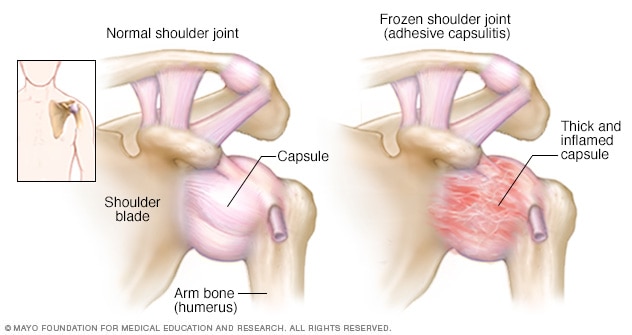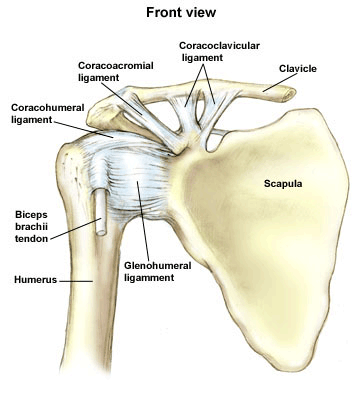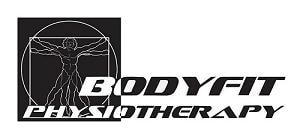
 Adhesive Capsulitis, otherwise known as “Frozen Shoulder” is a condition affecting most commonly (but not limited to) women between ages 40-60. This disorder of the shoulder joint capsule results in those affected by this condition being unable to move their arm/s up or turn them to the side (loss of external rotation of the shoulder). This happens because of thickening and tightening of shoulder capsule and ligaments, especially in the coracohumeral ligament (see diagram on the right).
Adhesive Capsulitis, otherwise known as “Frozen Shoulder” is a condition affecting most commonly (but not limited to) women between ages 40-60. This disorder of the shoulder joint capsule results in those affected by this condition being unable to move their arm/s up or turn them to the side (loss of external rotation of the shoulder). This happens because of thickening and tightening of shoulder capsule and ligaments, especially in the coracohumeral ligament (see diagram on the right).
Frozen shoulder can arise on its own with no apparent reason. It may also occur following a trauma (even a minor one) or following surgery. It occurs more frequently and more severely among diabetic patients, especially those who are insulin dependent.
The condition generally occurs in three phases:
- Freezing: At this stage, there is usually pain with movement of the shoulder or arm.
- Frozen: The pain lessens, but the shoulder becomes markedly stiff.
- Thawing: It gradually fades away. Frozen shoulder is a self-limiting conditions, which means it will eventually get better- sometimes completely on its own. This final phase can take up to 2 years or more.
Treatment for this condition may involve prescription pain relieving anti-inflammatory medication, as well as stretching and gentle physiotherapy. Sometimes, corticosteroids and numbing medication may be injected into the joint. It is also possible in some cases to have a surgical procedure done (arthroscopic capsular release) to cut and loosen the stiff joint capsule, howver this is seldom necessary.
Other remedies may include heat packs and gentle stretches. But it depends on how long you have had your frozen shoulder. That’s why getting professional advice is a great idea.
It is important to make the diagnosis as early as possible to avoid a prolonged stiffness in the long term. It is best to get an evaluation from a GP, physiotherapist or orthopedist to get advice on the best treatment plan possible for this condition.
If you’d like a free physiotherapy assessment of your shoulder either at our Howick or Pakuranga clinic give us a call on 09-5328942 or book a free assessment online here: https://nzappts.gensolve.com/bodyfit
